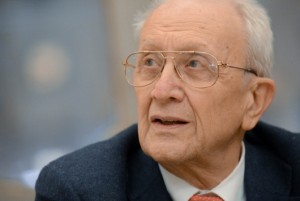Imagine a few years into the future — you are returning home from a family visit over the Thanksgiving holiday when a deer runs into the road in front of you.
You slam on the brakes, but it is too late. You hit the deer and lose control of your car, which runs off the road, flips, and, in spite of your seat-belt, you die in the crash.
Your worries are over. For your survivors, the tragedy is just beginning.
In this hypothetical future, the growth of government has continued on its present course. Do you think your death was punishment enough? The State doesn’t think so.
After all the applicable estate taxes have been charged, and automatically deducted from your bank accounts and forfeited property, the real frenzy begins.
Your family gets a bill from the police who wrote up the accident report, along with surcharges for “emotional distress” due to seeing your tattered remains, and an “Obama-Care” fine on behalf of all “first responders” involved because they were exposed to potentially hazardous fumes and bodily fluids.
Your survivors are ticketed for the deer you killed without a license, and your family’s hunting weapon — one black-powder rifle per family being the only thing still legal — is confiscated for “poaching.”
Your car’s “black box” indicates you were over the speed limit by a tiny amount, so your estate is charged a fine for your speeding, as well, plus the fine is doubled because a couple of years ago when self-driving cars were made available, at great expense, you chose to forgo that new technology and keep doing the driving.
The EPA charges your loved ones the standard fee for the gasoline spill clean-up, even though your tank was almost empty and nothing spilled. Also, since there was a small fire, a fine for polluting the air is levied, as well as a fine for the bio-hazard created as your life-blood seeped into the soil, and one for littering due to all the car parts scattered around the crash site.
It gets worse. The autopsy confirms the presence of tryptophan, due to the recent turkey dinner, so your life insurance won’t pay out — it’s the law. You were “driving under the influence.”
Did you really think the zero tolerance and ever-tightening DWI laws would remain where they stood in 2013?
You may think this scenario is far-fetched. “It can’t happen here.”
It is already happening. Americans have a choice: radically change the path that is being followed, or “stay the course” to see where it leads.
source
WAKE UP NOW!!!!!! TOMORROW WILL BE TOO LATE!!!










